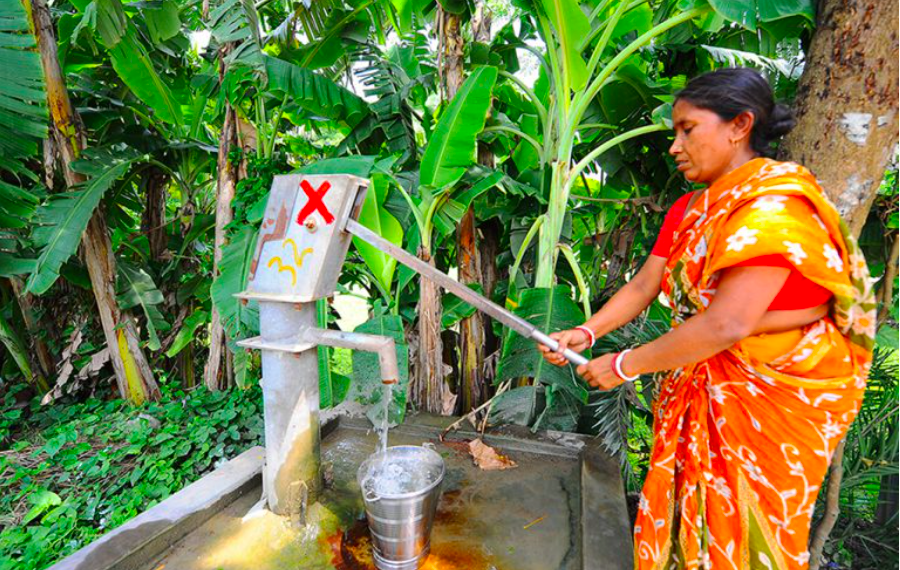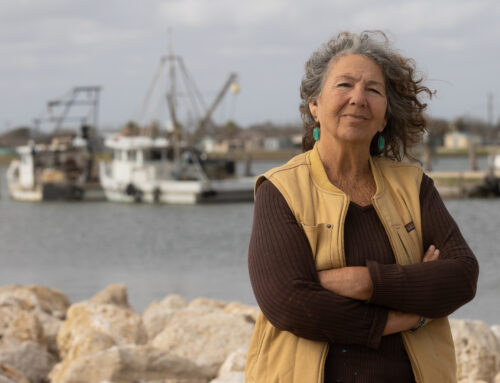Women are responsible for carrying water home, storing it, and managing household supplies but are still ignored when it comes to important water management decisions. Incorporating women’s voices into water, sanitation and hygiene (WASH) issues empowers the women themselves while simultaneously leading to better results. For instance, including women in the movement to curtail open defecation in rural Bangladesh led to success because the specific needs and desires of the women were then met. Specifically, because of this input, the toilets that were to be placed in rural communities were designed with gender specific needs in mind as well as placed in locations amenable to local women. Photo Credit: Dilip Banerjee







